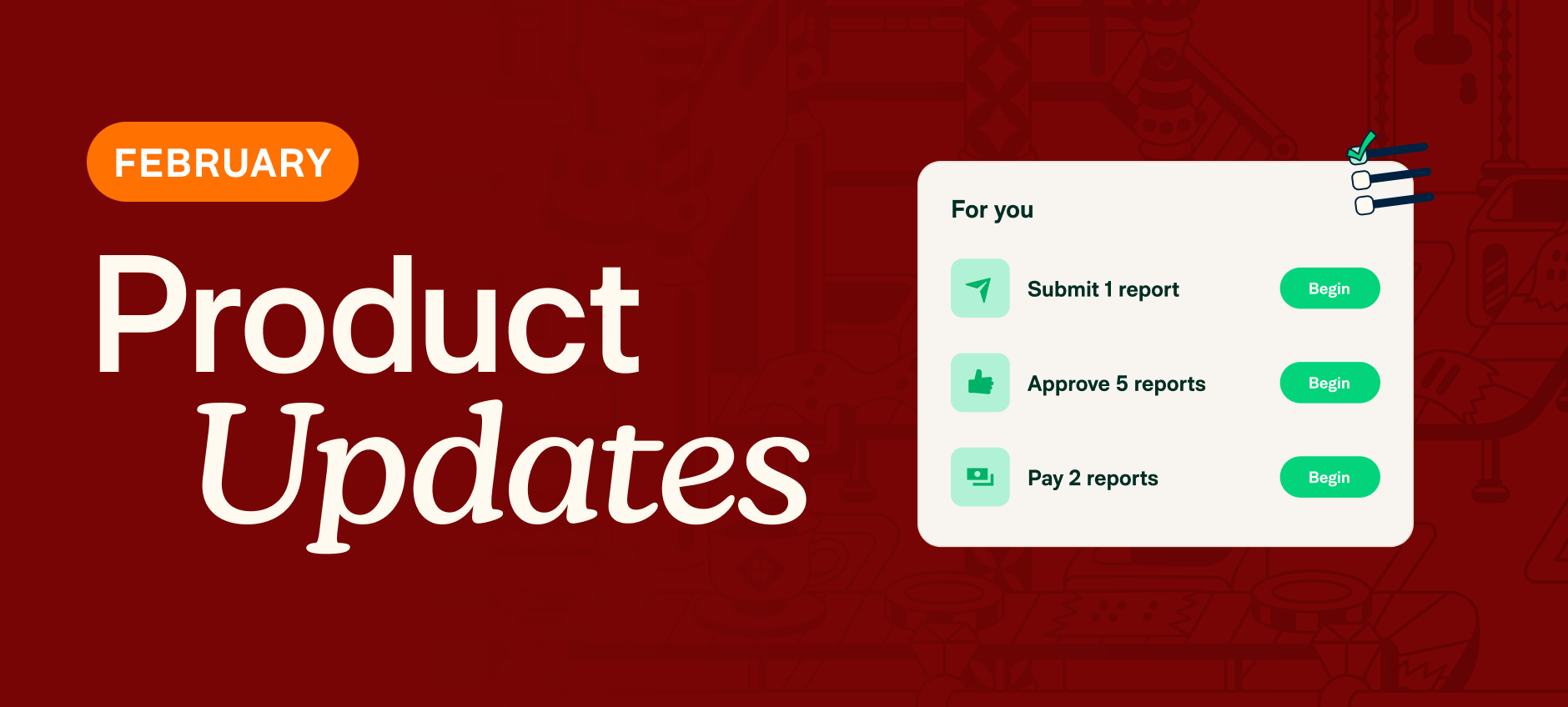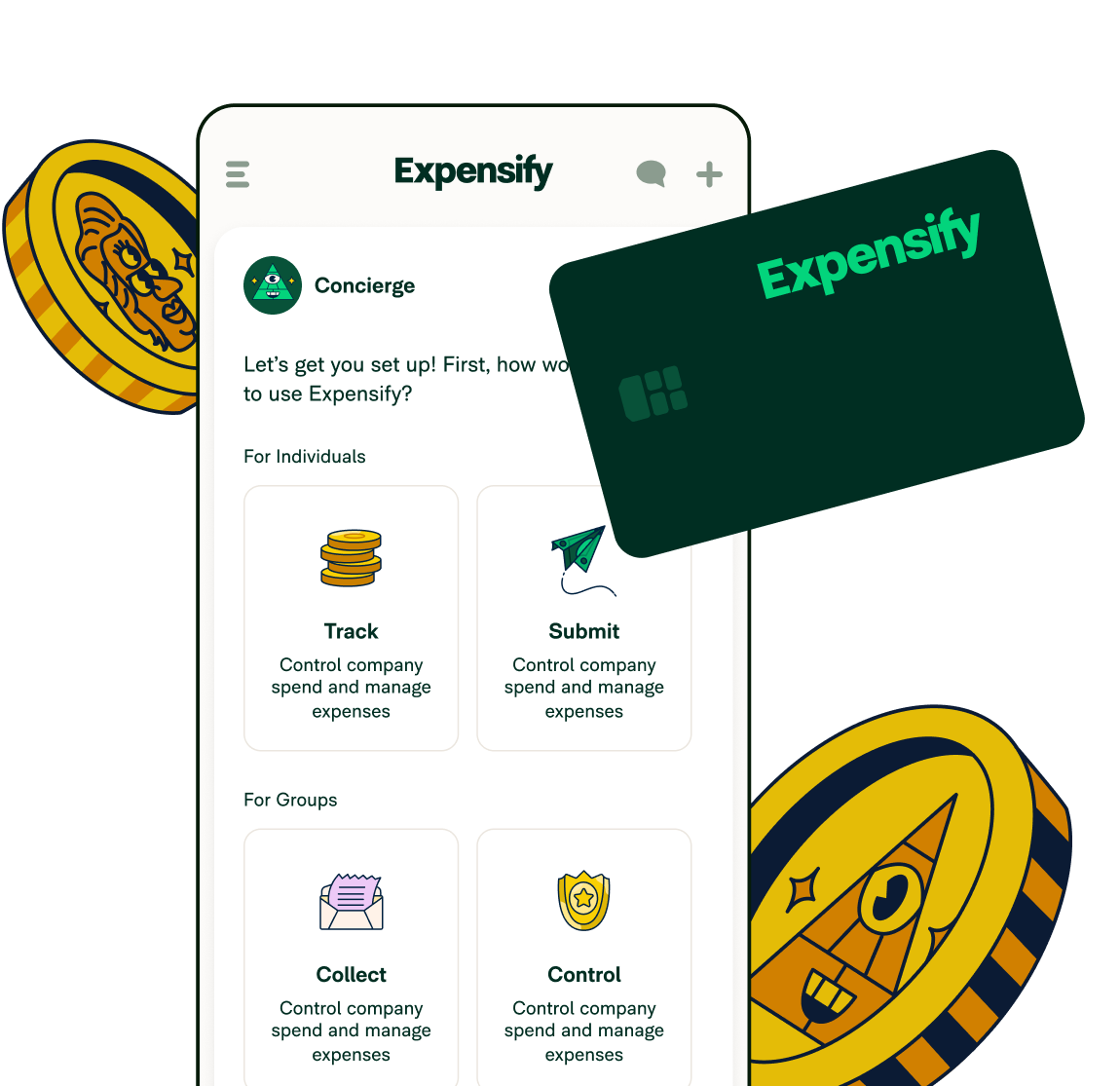20 tax tips for small businesses: What every business owner needs to know

Running a business is already a juggling act – from managing operations to planning growth strategies (and yes, dealing with those inevitable coffee spills). When tax season approaches, it can feel like someone's tossing another ball into your routine. But here's the good news: with the right small business tax tips and modern tools, tax season can transform from a dreaded deadline into a strategic opportunity.
Whether you're filing small business taxes for the first time or looking to optimize your tax strategy, we've compiled 20 essential tax tips for small business owners that will help you navigate tax season confidently and potentially save money along the way.
Filing small business taxes for the first time
First-time tax filing doesn't have to be overwhelming. Let's break down the essentials of small business taxes for beginners. Think of it as creating a roadmap for your business's financial journey. With these best small business tax season tips for small business owners and a systematic approach, you'll navigate tax season with confidence.
Understanding business structures and tax obligations
Your business structure significantly impacts your tax situation. Whether you're a sole proprietorship, LLC, or corporation, each entity type comes with specific tax obligations and advantages.
For instance, LLCs benefit from pass-through taxation, while corporations might leverage different tax strategies for stock contributions and employee benefits.
Essential documents and deadlines
Success in tax filing starts with organization. Key documents you'll need include:
Bank and credit card statements
Receipt records and expense documentation
Employee and contractor tax forms
Previous tax returns (if applicable)
Remember: Quarterly tax deadlines are just as important as annual filing dates. Estimated tax payments are generally due April 15, June 15, September 15, and January 15. Always confirm the exact tax due dates for your tax year.
Setting up your tax filing system
Implement a robust system for tracking income, expenses, and deductions throughout the year. Digital tools like Expensify can automate much of this process, making tax season significantly more manageable.
Strategic tax deductions and credits
Smart small business tax strategies include maximizing legitimate deductions and credits. Here's what you need to know:
Section 179 property deductions explained
The Section 179 deduction allows businesses to deduct the full purchase price of qualifying equipment and software purchased during the tax year. This powerful tax incentive can help reduce your taxable income significantly while investing in your business's growth.
Equipment and green energy tax credits
Beyond basic deductions, explore tax credits for:
Energy-efficient building improvements
Solar panel installations
Electric vehicle charging stations
Sustainable business practices
Health credit carryforward strategies
Small business owners can benefit from various health-related tax credits, including the Small Business Health Care Tax Credit. Understanding carryforward strategies helps maximize these benefits across multiple tax years.
Stock contribution deductions
Smart tax planning isn't just about tracking expenses – it's about making strategic decisions that benefit both your business and your employees. Stock contributions can serve as a powerful tool for tax savings while helping you attract and retain top talent.
When structured correctly, these contributions can provide significant tax advantages for your business while creating valuable equity opportunities for your team.
Tracking business mileage accurately
If you’re traveling for business, you better be tracking those miles! By keeping an accurate record of your mileage, you’ll not only be prepped to make some deductions come tax season, but you’ll be safeguarded in the case of any potential audits.
There are two ways to calculate the business deduction for the use of your vehicle:
The standard mileage deduction, which involves tracking your mileage and multiplying the miles driven by the federal mileage rate for the year
The actual expenses method, which requires you to track the individual expenses associated with your vehicle
Trips made for business purposes are always tax deductible, but the annual IRS mileage rate fluctuates. Check the rate for the current year and decide which deduction method is best for your business.
The IRS mileage reimbursement rate for 2026 is 72.5 cents per mile. Note: This rate generally supports business deductions (and certain limited exceptions), but it can’t be used as an itemized deduction for unreimbursed employee travel expenses in 2026.
Also, using tools like Expensify’s distance tracking feature can help you track every trip so you can stay compliant and maximize your deductions.
Business entity-specific tax considerations
As your business evolves, so should your tax strategy. Understanding how different business structures impact your tax obligations can lead to smarter financial decisions and significant savings.
Entity structure benefits
Choosing the right business structure isn't just about liability protection – it's a crucial small business tax tip that can affect everything from self-employment taxes to available deductions. Each structure, from sole proprietorships to S-corporations, comes with its own set of tax advantages and considerations.
Pass-through taxation
One of the most valuable small business tax tips is understanding pass-through taxation. This approach allows business income to flow through to your personal tax return, potentially simplifying your tax situation and offering unique planning opportunities.
LLC-specific tax considerations
For many small businesses, LLCs offer an attractive balance of flexibility and protection. Smart LLC tax tips include understanding self-employment tax obligations, maximizing qualified business income deductions, and strategically timing income and expenses.
Multi-member considerations
When multiple owners are involved, tax planning becomes more complex but also opens up additional opportunities. Understanding these nuances, from profit-sharing arrangements to varying tax bases, is crucial for optimizing one's tax position.
Quarterly tax planning to boost maximum tax advantage
Think of quarterly tax planning as your business's financial health check-up. Instead of scrambling during tax season, regular monitoring helps you make proactive decisions that can significantly impact your bottom line.
Digital expense tracking
Modern small business tax help comes in digital form. Using tools like Expensify, you can automatically categorize expenses, capture receipts, and generate realtime reports that make tax preparation a breeze. This isn't just about organization – it's about having the data you need to make informed financial decisions year-round.
Documentation best practices
Keeping pristine records isn't just about satisfying the IRS. By keeping everything organized, you can give yourself peace of mind. Smart documentation strategies help you maximize tax savings while staying audit-ready. From digital receipt storage to organized expense categories, think of documentation as your financial safety net.
Advanced tax planning tips
Let's dive deeper into sophisticated tax strategies that can give your business a competitive edge. These aren't just small business tax tips, but growth strategies disguised as tax planning.
Legal tax optimization methods
Let's explore legitimate tax strategies that smart business owners use to minimize their tax burden. Think of these as purposefully designed pathways in the tax code, not loopholes, that encourage business growth and investment.
Cost segregation studies: Instead of depreciating your entire building over 39 years, cost segregation identifies building components that can be depreciated faster – sometimes as quickly as 5, 7, or 15 years. For example, specialized electrical systems, carpet, and certain fixtures often qualify for accelerated depreciation.
Bonus depreciation: Bonus depreciation is 100% for qualified property acquired and placed in service after January 19, 2025 (with transition rules for certain property placed in service earlier in 2025). This applies to both new and used equipment. Imagine buying a $50,000 piece of machinery and deducting the entire amount immediately.
Qualified Business Income Deduction (QBI): For pass-through businesses, this allows you to deduct up to 20% of your qualified business income. For instance, if your business nets $100,000, you might be able to deduct $20,000, significantly reducing your taxable income.
Strategic income timing
This is also another legal tax optimization method but deserves its own section because it’s a big one. By carefully timing when you receive payments and incur expenses, you can optimize your tax position. Timing is everything in business, and that includes your tax strategy. Here's how to make timing work in your favor:
Strategic revenue management
Year-end decisions: That December project invoice? Consider if it's better to bill now or in January based on your tax bracket outlook.
Payment timing: Send December invoices by the 20th to ensure current-year income, or delay to January if that's more advantageous.
Smart expense management
Equipment purchases: That new $30,000 production equipment could mean immediate Section 179 deduction benefits in December versus waiting for next year.
Prepaid expenses: Consider prepaying up to 12 months of:
Insurance premiums
Rent
Professional subscriptions
Marketing contracts
Remember: These strategies must align with legitimate business purposes and proper accounting methods. Think of it as smart timing, not income hiding.
Strategic family gift planning
Family gift planning isn't just a matter of generosity. It's a sophisticated tax management strategy that can benefit both your business and your family. Here's how you can leverage it effectively:
For 2025, you can give up to $19,000 per person annually without triggering gift tax. Picture this: as a business owner with three children, you could transfer $57,000 tax-free each year. If you're married, you and your spouse can combine your exclusions to give $38,000 per recipient – that's significant wealth transfer potential without tax implications.
2) Income splitting strategies
Hire family members in legitimate roles and pay reasonable salaries
If your child is under 18, their wages from your business aren't subject to FICA taxes
Example: Hiring your teenage child to manage your social media for $12,000 annually creates a business deduction while providing them earned income for Roth IRA contributions
3) Family Limited Partnerships (FLP)
Create an FLP to hold business assets or investments
Gift limited partnership interests to family members over time
This transfers wealth while maintaining control and potentially qualifying for valuation discounts
Real example: A business owner places commercial real estate in an FLP and gradually gifts interests to their children, reducing estate tax exposure while maintaining management control
Remember: These strategies require careful documentation and often benefit from professional guidance to implement correctly. The key is viewing them as long-term planning tools rather than quick fixes.
Retirement savings tax benefits
Contributing to your retirement account benefits your financial future and offers immediate tax savings. Here's a breakdown of how contributions to various types of retirement accounts can affect your taxes:
Traditional IRA: Contributions made to a Traditional IRA may be tax-deductible depending on your income level and whether you or your spouse have a retirement plan at work. Deductible contributions reduce your taxable income for the year, which means you pay less in taxes. However, when you eventually withdraw funds in retirement, those distributions are taxed as ordinary income.
Roth IRA: Contributions to a Roth IRA are made with after-tax dollars, so there's no immediate tax deduction. However, the advantage comes later: qualified withdrawals in retirement are tax-free.
401(k) or 403(b): These employer-sponsored plans allow employees to make pre-tax contributions, which reduces their taxable income for the year. Like the Traditional IRA, withdrawals in retirement are taxed as ordinary income. Many employers also offer Roth versions of these plans, which follow the same tax rules as the Roth IRA.
SEP IRA and SIMPLE IRA: These are retirement accounts designed for self-employed individuals and small businesses. Contributions to these accounts reduce your taxable income for the year, and like the Traditional IRA, distributions in retirement are taxed as ordinary income.
Solo 401(k): This is a 401(k) for self-employed individuals. It allows for both employee (you) and employer (also you) contributions. The combined contributions can provide a significant reduction in taxable income.
Getting professional tax help
Sometimes, the smartest business decision is knowing when to bring in the experts. Professional tax help isn't an expense but an investment in your business's financial health.
When to consult a tax professional
Think of a tax professional as your business's financial quarterback. They can spot opportunities you might miss and help you avoid costly mistakes. Consider seeking professional small business tax advice when:
Your business structure changes
You're planning major investments
Revenue significantly increases
You're considering selling or expanding
Tax laws affect your industry
Choosing between software and services
Today's small business owner has options from DIY tax software to full-service accounting firms. The key is matching the solution to your business's complexity and your comfort level with tax matters. Sometimes, a hybrid approach works best: using software for day-to-day tracking and consulting professionals for strategy and complex filings.
Gone are the days when tax season meant drowning in paperwork and racing against deadlines. Armed with these tax-saving tips for small business owners and the right tools, you can transform tax time from a dreaded deadline into a strategic advantage.
Ready to ditch the shoebox of receipts? Expensify helps you capture, track, and categorize expenses automatically throughout the year, so you can focus on what really matters: growing your business.
FAQs about taxes for a small business
-
Small businesses can save the most taxes by taking advantage of various deductions. These include expenses related to home offices, meals, travel, and entertainment associated with business purposes. Keeping accurate records, classifying their business correctly, and leveraging Section 179 for equipment deductions can also significantly lower taxable income.
At the end of the day, staying educated about the ever-changing tax laws and consulting with a tax professional can help to ensure businesses aren’t leaving money on the table.
-
Owning a small business helps with taxes by offering several deductions and credits not available to the average individual taxpayer. As a business owner, you can deduct a wide range of expenses related to your operations, from office supplies to rent and utilities.
Other perks include the potential to deduct health insurance premiums and the ability to defer taxes by reinvesting profits back into the business. In essence, the tax code is structured to incentivize business growth, and with proper planning, small business owners can reap these benefits.
-
While there's no fixed limit on business deductions, you can write off all "ordinary and necessary" business expenses. This includes everything from office supplies to marketing costs. The key? Your deductions must be both legitimate and well-documented.
Pro tip: For 2026, the Section 179 deduction limit is $2,560,000, with the phase-out beginning at $4,090,000 of qualifying purchases.
-
Rather than avoiding taxes, smart business owners focus on minimizing their tax burden legally. Start by maximizing legitimate deductions, timing your income and expenses strategically, and taking advantage of tax credits. For instance, investing in energy-efficient equipment could qualify you for green energy credits while reducing operational costs.
-
The answer varies based on your business structure, deductions, and credits.
However, after taking the standard deduction ($16,100 for single filers in 2026) and qualified business income deduction (up to 20% of business income), many small businesses can earn substantial revenue while minimizing tax impact.
Remember, the goal isn't to avoid paying taxes entirely, but to optimize your tax position legally.
-
Instead of avoiding taxes, successful LLC owners leverage legitimate tax advantages. LLCs benefit from pass-through taxation and can choose how they're taxed – as a sole proprietorship, partnership, or corporation. Smart strategies include maximizing business deductions, timing income strategically, and utilizing retirement accounts like SEP IRAs or Solo 401(k)s.
-
Rather than loopholes, think of these as intentional tax incentives designed to help businesses grow. Legitimate strategies include accelerated depreciation, qualified business income deduction, and strategic timing of income and expenses. Remember, a "loophole" you can confidently explain to an IRS auditor isn't a loophole – it's smart tax planning.








